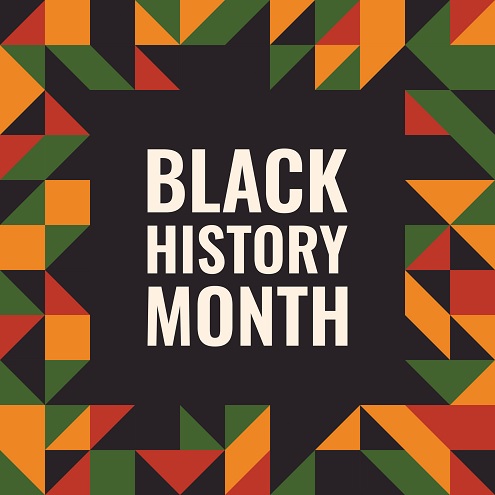Rosa Parks is one of my heroes. Ask anyone who knows me and they'll tell you that I would have loved to have known her; that she is an inspiration to me, to stand up....or sit down....when you want to make a change.
She was born Rosa Louise McCauley on February 4, 1913, in Tuskegee, Alabama. Her childhood brought her early experiences with racial discrimination and activism for racial equality. After her parents separated, Rosa's mother moved the family to Pine Level, Alabama to live with her parents, Rose and Sylvester Edwards, on their farm. Both her grandparents were former slaves and strong advocates for racial equality.In one experience, Rosa's grandfather stood in front of their house with a shotgun while Ku Klux Klan members marched down the street. The city of Pine Level, Alabama had a new school building and bus transportation for white students while African American students walked to a one-room schoolhouse, often lacking desks and adequate school supplies. Rosa knew that, merely because of the color of her skin, she would not be treated equally. In 1929, while in the eleventh grade, Rosa left school to care for her sick grandmother in Pine Level. She never returned to school but instead got a job at a shirt factory in Montgomery. In 1932, she married a barber named Raymond Parks who was an active member of the NAACP and with his support, Rosa finished her high school degree in 1933 and she, herself, soon became actively involved in civil rights issues. Rosa Parks joined the Montgomery chapter of the NAACP in 1943, and served as the secretary to the president, E.D. Nixon until 1957. Now, in those days, not so very long ago, in Montgomery, Alabama, city code required that all public transportation be segregated, and that all bus drivers be given "powers of a police officer of the city while in actual charge of any bus for the purposes of carrying out the provisions" of the code. While operating a bus, drivers were required to provide "separate but equal"—there's that old chestnut again—accommodation for white and Black passengers by assigning seats. This was accomplished with a line, an actual sign, roughly in the middle of the bus separating white passengers in the front and African Americans in the back. But African Americans didn't just have to ride in the back. When they got on the bus, they would pay their fare, then get off the bus, walk to the back and board the bus again. No one wanted “colored” people walking in between the white people. If the seats in the front of the bus filled up, and more white passengers got on, the bus driver would simply move the sign back, separating Black and white passengers, and ask Black passengers to give up their seats so the whites could sit down. On December 1, 1955, after a long day working at the Montgomery Fair department store, Rosa Parks boarded the Cleveland Avenue bus for home. She got on, paid her fare, got off, walked to the back, got on again, and found a seat in the first of several rows designated for "colored" passengers. Though the city's bus ordinance did give drivers the authority to assign seats, it didn't specifically give them the authority to demand a passenger to give up a seat to anyone regardless of color. However, Montgomery bus drivers had adopted the custom of requiring Black passengers to give up their seats to white passengers when no other seats were available. If the Black passenger protested, the bus driver had the authority to refuse service and could call the police to have them removed. As the bus Rosa was riding continued on its route, it began to fill with white passengers. Eventually, the bus was full and the driver noticed that several white passengers were standing in the aisle. This apparently was unacceptable. He stopped the bus and moved the sign separating the two sections back one row and asked the four Black passengers in that row to give up their seats. Three complied, but Rosa refused. She stayed seated. The driver demanded, "Why don't you stand up?" Rosa replied, "I don't think I should have to stand up." Can I get a You Go, Girl. The driver called the police, who arrested Rosa at the scene and charged her with violation of Chapter 6, section 11 of the Montgomery City code. She was taken to police headquarters where later that night she was released on bail. On December 8, Rosa faced trial and in a thirty-minute hearing was found guilty of violating a local ordinance. She was fined ten dollars, plus a four-dollar court fee. The very evening she was arrested, E.D. Nixon, head of the local chapter of the NAACP, began to organize a boycott of Montgomery's city buses. Ads were placed in local papers and handbills were printed and distributed in Black neighborhoods. Members of the African American community were asked to stay off the buses Monday, December 5th in protest of Rosa's arrest. People were encouraged to stay home from work or school, take a cab or walk to work. With most of the African American community not riding the bus, organizers believed a longer boycott might be successful. On Monday, December 5, 1955, a group of African-American community leaders gathered at Mt. Zion Church to discuss strategies. They determined that the effort required a new organization and strong leadership. They formed the "Montgomery Improvement Association"--the MIA--and elected Montgomery newcomer Dr. Martin Luther King, as their first president. The boycott of December 5th was a success, and so it was continued. Some African-Americans carpooled; others rode in African American-operated cabs. But most of the estimated 40,000 African American commuters walked, some as far as 20 miles to get to work. Public buses sat idle for months, severely crippling the transit company's finances. But the boycott faced strong resistance, with some segregationists retaliating with violence. Black churches were burned and both Martin Luther King and E.D. Nixon's homes were attacked. Other attempts were made to end the boycott as well. The taxi system used by the African American community to help people get around had its insurance canceled. Other Black people were arrested for violating an old law prohibiting boycotts. See, the Black folks weren't allowed to protest, or have an opinion, or stay seated. But the African American community also took action. Under the Brown v. Board of Education decision that said "separate but equal" policies had no place in public education, a black legal team took the issue of segregation on public transit systems to federal court. In June of 1956, the court declared Alabama's racial segregation laws for public transit unconstitutional. The city appealed and on November 13, 1956, the Supreme Court upheld the lower court's ruling. With the transit company and downtown businesses suffering economic loss and the legal system ruling against them, the city of Montgomery had no choice but to lift the law requiring segregation on public buses. The combination of legal action, backed by the unrelenting determination of the African American community made the 382-day Montgomery Bus Boycott one of the largest and most successful mass movements against racial segregation in history. That's right, people. The boycott lasted over a year! Although she was now a symbol for the Civil Rights Movement, Rosa Parks suffered as a result. She lost her job at the department store and her husband lost his after his boss forbade him to discuss his wife or their legal case. They were unable to find work and eventually left Montgomery. Rosa Parks moved her family—her husband and mother—to Detroit, where she made a new life for herself, working as a secretary and receptionists in U.S. Representative John Conyer's congressional office. She also served on the board of the Planned Parenthood Federation of America. In 1987, at age seventy-four, Rosa Parks, along with life-long friend Elaine Eason Steele, founded the Rosa and Raymond Parks Institute for Self-Development. The institute runs the "Pathways to Freedom" bus tours, introducing young people to important civil rights and Underground Railroad sites throughout the country. In 1992, she published Rosa Parks: My Story, an autobiography recounting her life in the segregated South. In 1995, her memoirs, Quiet Strength, focused on the role religious faith played in her life. Rosa Parks received many accolades during her lifetime including the Spingarn Medal, the NAACP's highest award. She also received the Martin Luther King Jr. Award. On September 9, 1996, President Bill Clinton awarded Rosa Parks the Presidential Medal of Freedom, the highest honor given by the U.S. executive branch. The next year, she was awarded the Congressional Gold Medal, the highest award given by the U.S. legislative branch. In 1999, Time magazine named Rosa Parks one of the 20 most influential people of the twentieth century.
 All of that because she wouldn't give up her seat. People used to say that Rosa wouldn't get up because she'd worked all day and was tired but she, herself, said she wasn't physically tired, she was just "tired of giving in." I know that feeling all too well. | 




















































